This article is part of a series discussing the value of machine data for shop floor management systems. Integrating machine assets into your connected factory ecosystem unlocks accurate, real-time production data that can be used to enhance not only production, but many other functions across both the shop floor and in business operations, from maintenance and quality, to quoting and planning.
Meeting Quality Standards Efficiently
Quality is a critical element in any manufacturing company. It impacts production capacity, supply chain planning, inventory, waste costs, labor, and more. When quality is high, these variables are optimized. When quality is low, it reduces competitiveness and results in higher costs.
Companies utilize quality management systems (QMS) across complex production environments to formalize documents, processes, and procedures, manage quality functions, and meet quality objectives.
One of the downsides of QMS is that they tend to lack accurate production data to drive quality continuous improvement programs.
Machines provide a key data stream to inform and strengthen the core functionality of quality management systems.

How Machine Data Impacts Quality
Quality begins at the machine and reaches every corner of an enterprise. The more data collected at the machine and spindle level, the more information is available to allow immediate intervention when necessary.
Machine data also gives managers insights into trends, enabling them to develop process improvement strategies for chronic and continuing issues.
Here are a few of the specific ways machine data impacts quality:
- Efficiency: Accurate machine data leads to increased efficiency. When labor and machine time don’t have to be used to make up for, or rework bad parts, capacity becomes available for new jobs to meet or exceed lead time expectations.
- Inventory: With today's highly volatile supply chains, planners already have enough headaches to contend with to meet existing demand. Machine data can help free planners from the task of building in an additional buffer for higher quality loss averages or as a hedge against variable quality loss.
- Labor: Labor is one of a manufacturer's most expensive costs. Machine data that renders accurate insights into the "why" behind a quality problem will mean less labor dedicated to reworking, scrap handling, and disposal.
- Service Levels: Poor quality certainly won’t win you more customers. Machine data enables proactive responses that reduce and eliminate quality problems. This means companies can produce, ship, and deliver on time with confidence that their products meet customer expectations.
Leveraging Machine Data for a More Effective QMS
QMS software helps companies implement quality into their culture, but it must have high-quality data to achieve optimal impact.
Many companies still use traditional data collection for quality KPIs. This practice reduces the effectiveness of the software and opens it to errors, biases, and omissions, reducing a company's ability to address quality issues quickly.
MachineMetrics can push the data to QMS software, significantly improving the core functionality of the quality system. Managers and quality team members can use equipment health and performance data to optimize programs and ensure cost-effective customer satisfaction.
Here are several ways MachineMetrics adds value to a QMS:
Work Standards and Procedures
Work standards and procedures are more than just instructions on operating a machine. They’re critical to the quality process and inform users how to operate the machine correctly to meet quality standards.
With MachineMetrics, managers can develop and build dynamic workflows. Changes, adjustments, and modifications are made to individual product types; these documents are automatically updated with real-time production and operations data. Any process variance can be responded to immediately.

Adherence to Industry or Regulatory Standards
Many manufacturing companies, like CNC machining, have incredibly high tolerance requirements. With automated machine data collected on the shop floor, teams can accurately measure how effectively they meet the desired product quality standards.
This real-time data delivers actionable insights that allow quick responses to events. Non-conformance can be captured at the machine via a tablet, enabling quality measures such as first-pass yield and scrap rate. Variances to standards trigger automated alerts and notifications so operators can intervene before it's too late.
Improved Quality Records
Companies need accurate records for reviewing and improving processes and may also need them for product liability or government-mandated compliance requirements.
Manual data collection in manufacturing is error-prone and time-consuming; the same goes for reporting on quality. The MachineMetrics platform delivers accurate quality reports to users and drives this data into your QMS system.
The higher volume of machine data gathered, analyzed, and made available ensures higher quality records so improvement efforts are targeted at the actual problem and not one clouded by manual data or human assumptions.

Quality Program Measurement and Improvement
The MachineMetrics platform collects accurate production and operational data that enables capacity analysis, root cause analysis, and other performance analysis to improve processes while retaining high-quality products that meet standards.
When parts are rejected, MachineMetrics gathers information to understand why quality issues are occurring. This gives managers the tools they need to identify the most common reasons for parts not meeting standards. With built-in tools like Pareto charts, managers can quickly utilize real-time machine data to drill down to the root cause, eliminate scrap, and ensure adherence to product standards. We refer to this as quality root cause analysis.
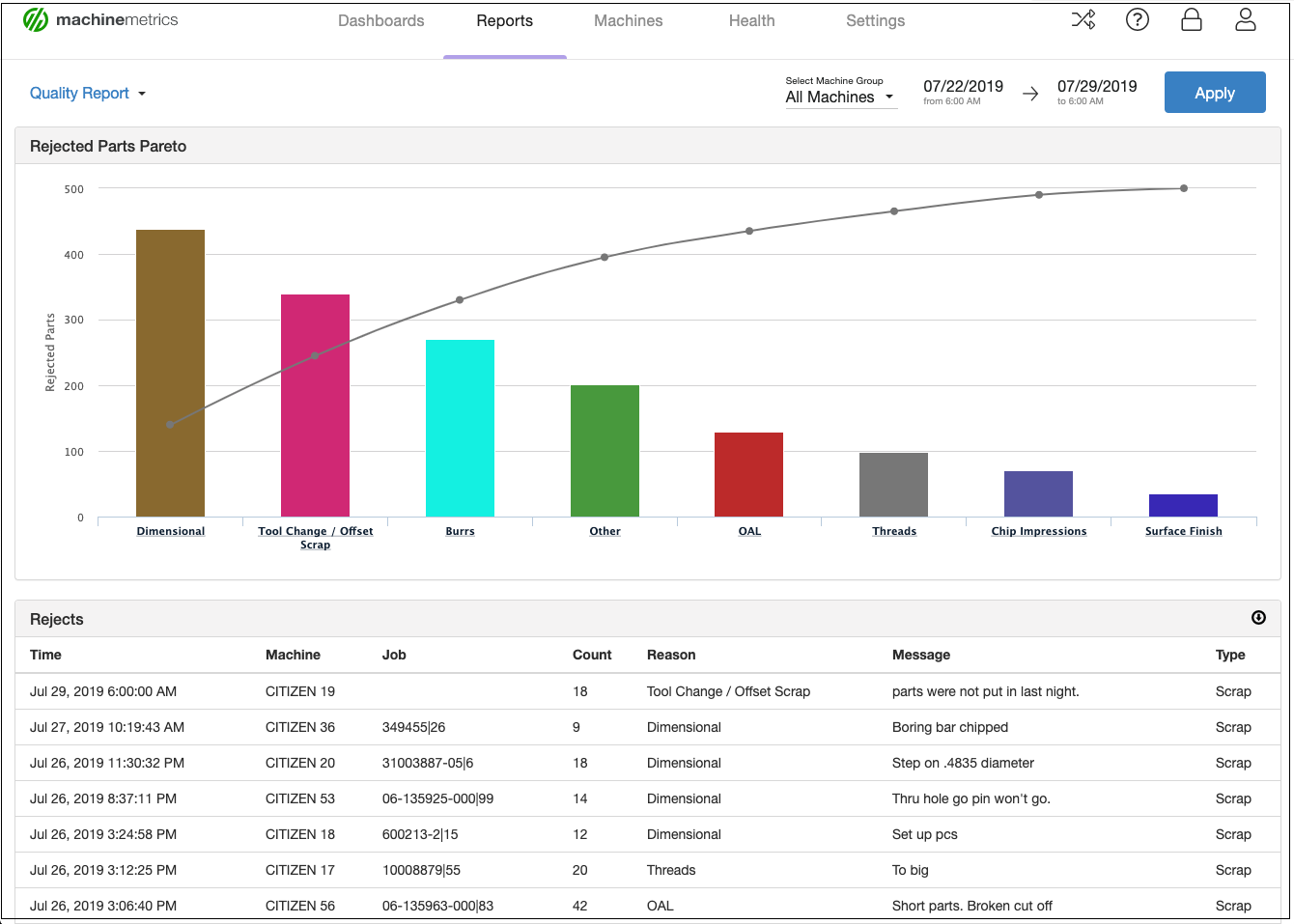 Pareto charts from MachineMetrics identify the top reasons parts did not meet standard.
Pareto charts from MachineMetrics identify the top reasons parts did not meet standard.
Improved Communication and Process Automation
Real-time machine data significantly improves communication across the enterprise. Everyone has access to current machine health and production performance, and with built-in alerts and notifications, quality staff can be notified automatically of noncompliance and scrap.
Since quality and production reports are data-driven and automatically retained, communication between production and quality teams operates from a single version of truth reflecting actual conditions and performance.
Using MachineMetrics to Improve Quality
Manual data deprives quality management systems of the accurate, real-time information that they need to cost-effectively meet quality standards.
MachineMetrics can integrate with quality systems, MES, and other shop floor solutions to ensure that accurate production data is used to drive each function.
Want to dive into a discussion with a product specialist? Set up some time with our team, or watch the platform in action to see how we do it.
Plug-and-play Machine Connectivity
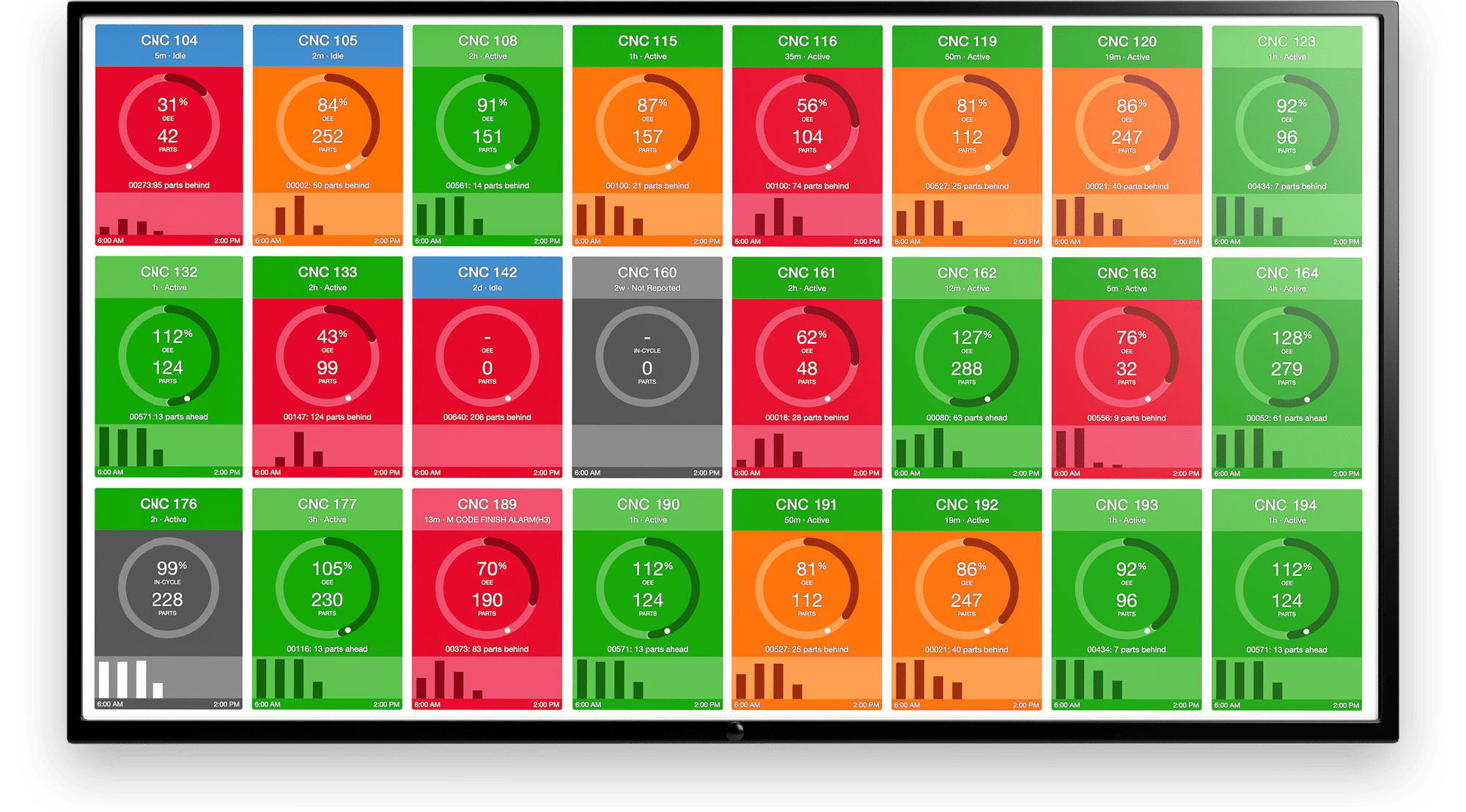
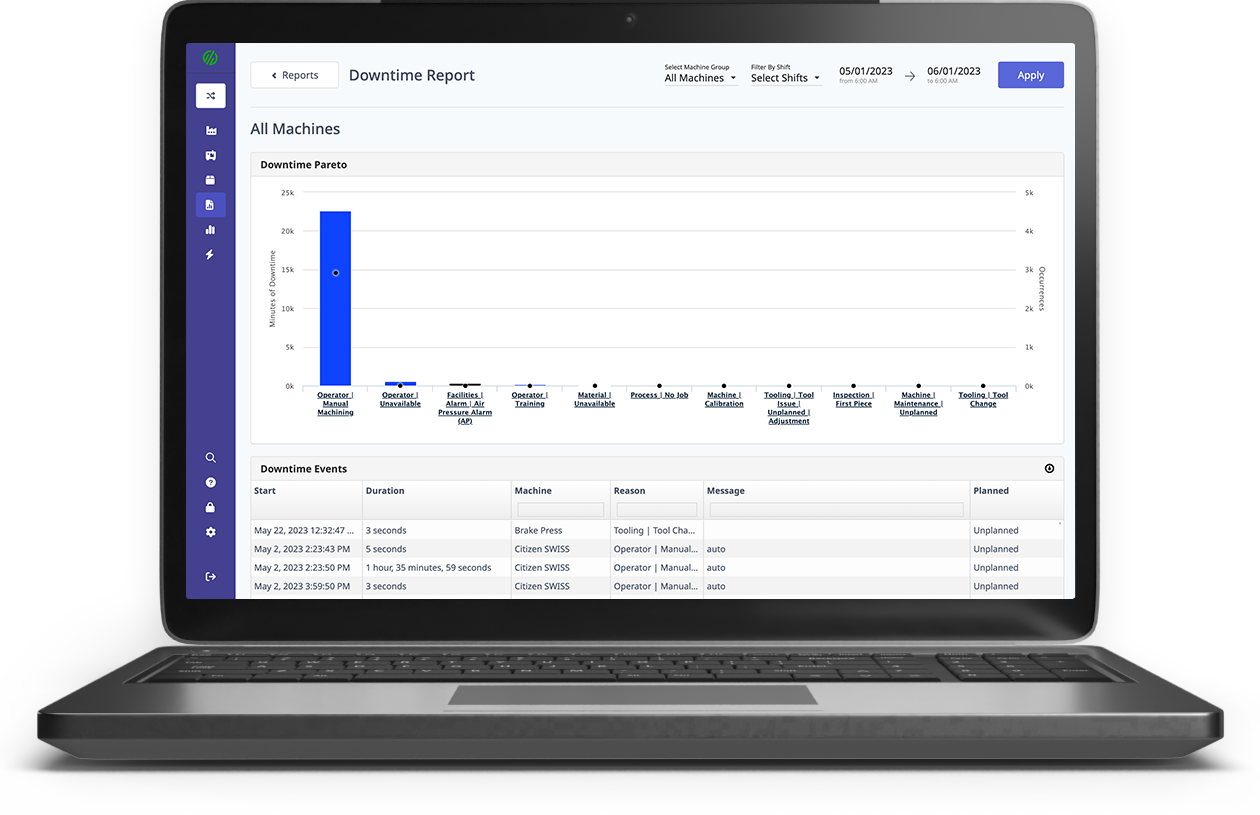
.png?width=1960&height=1300&name=01_comp_Downtime-%26-Quality_laptop%20(1).png)





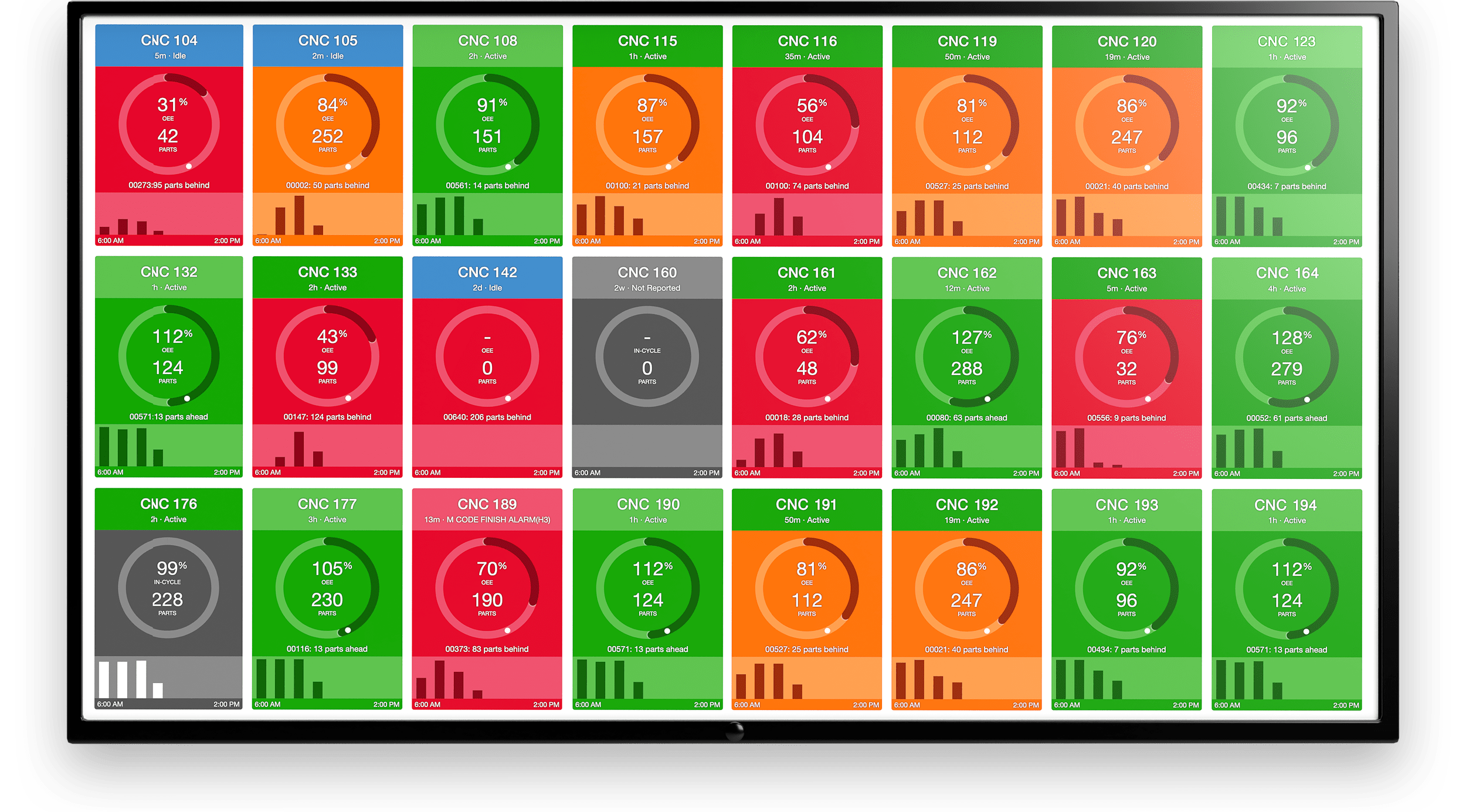
.gif)

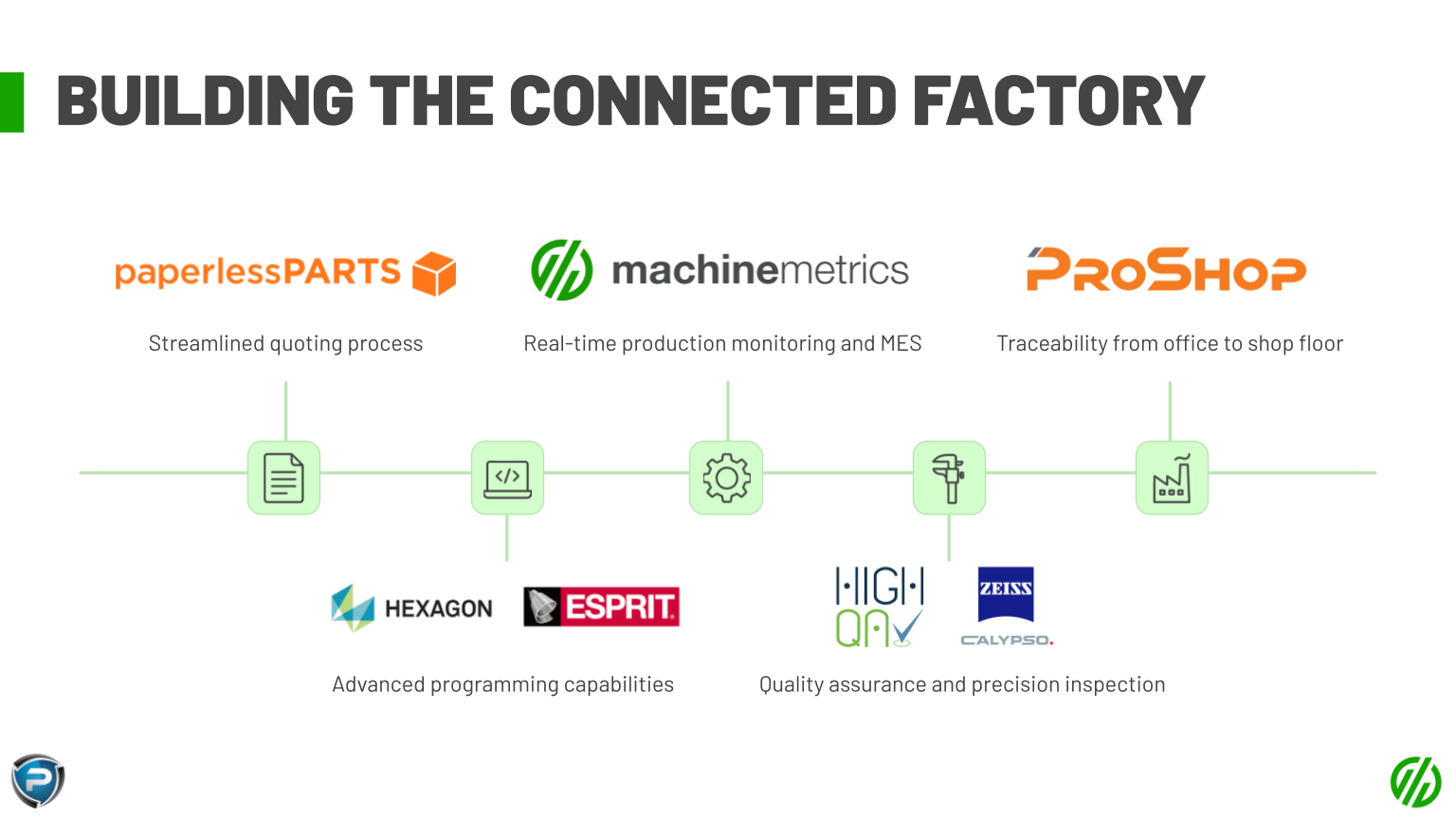

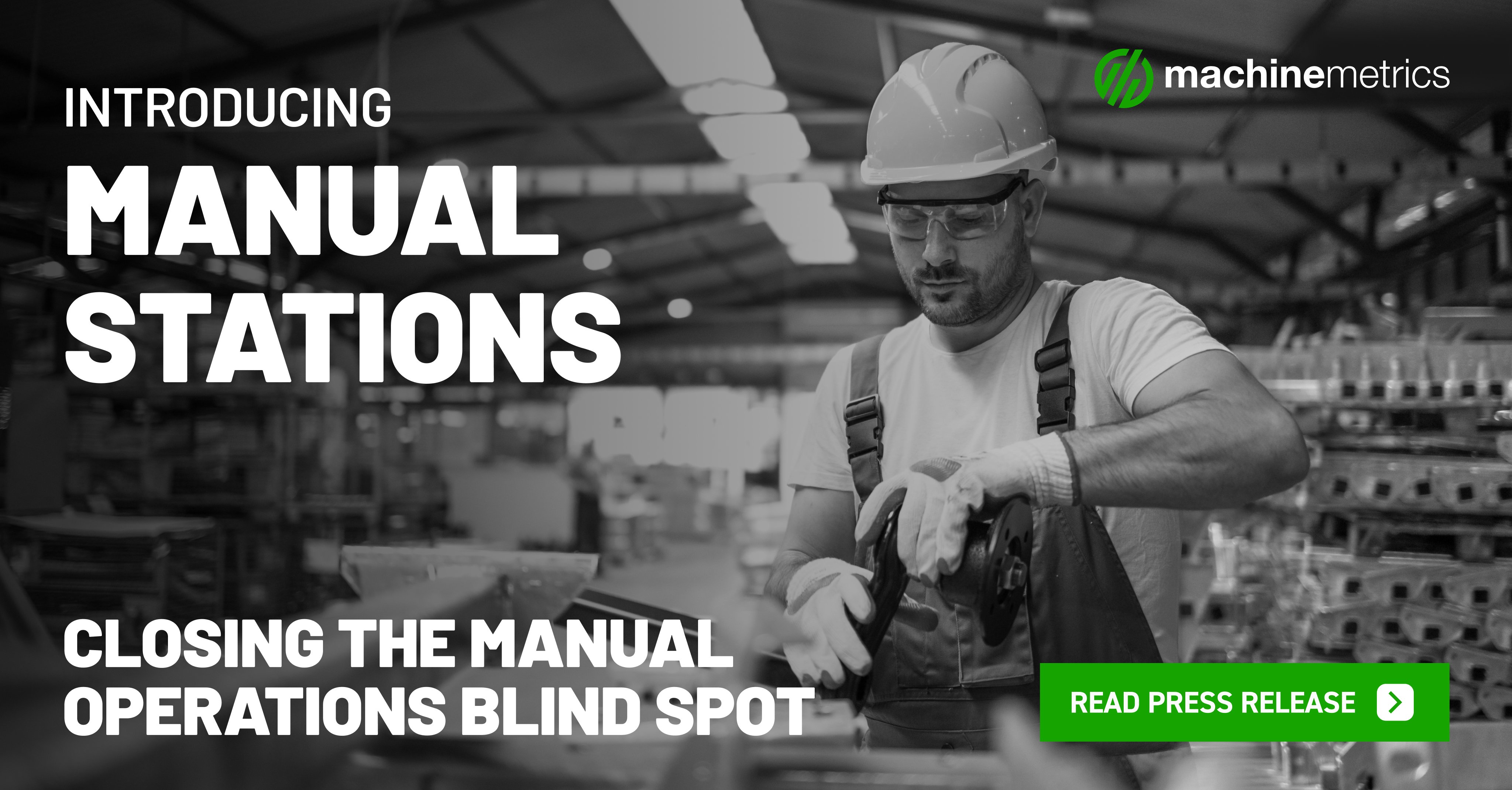
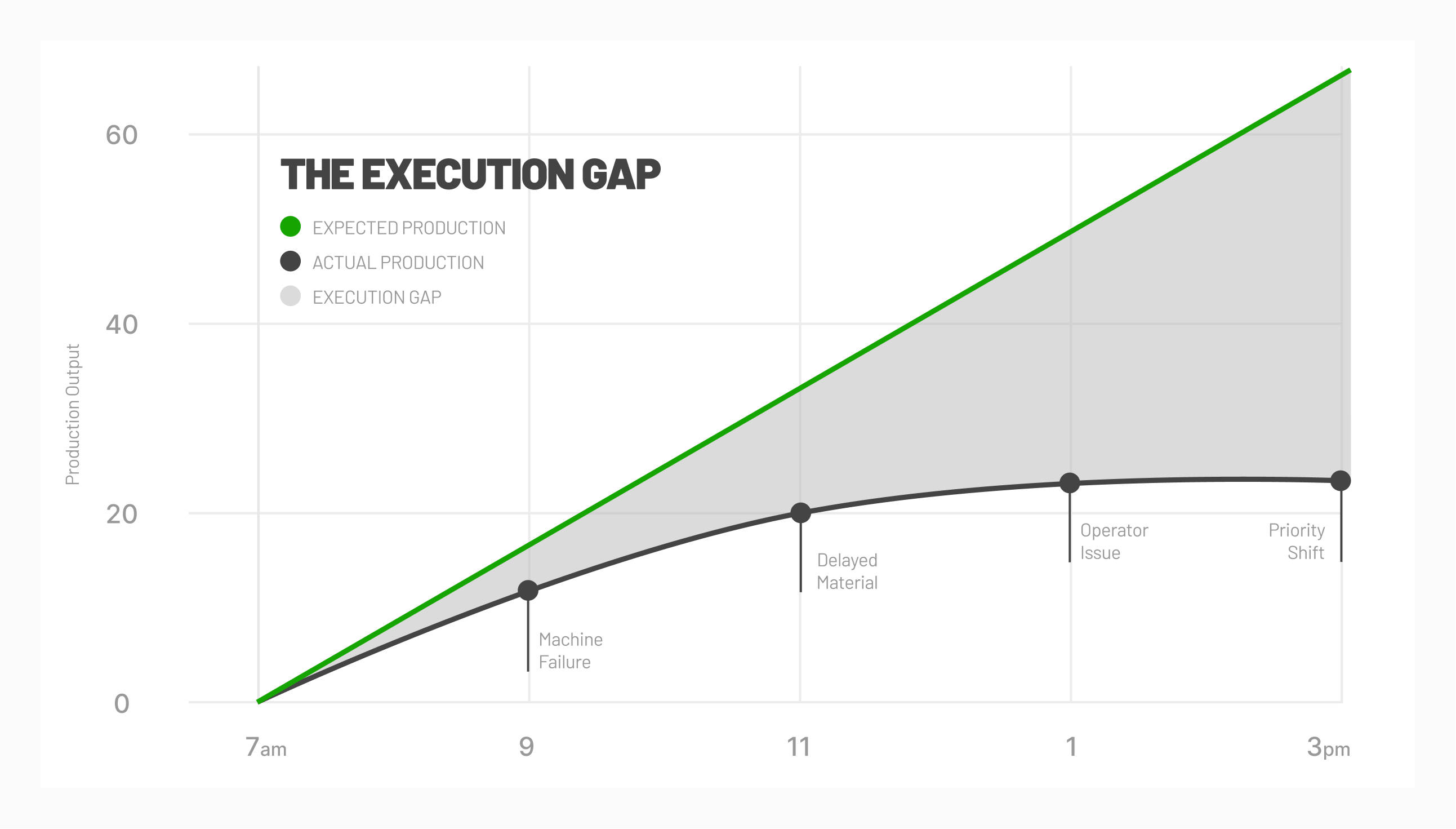



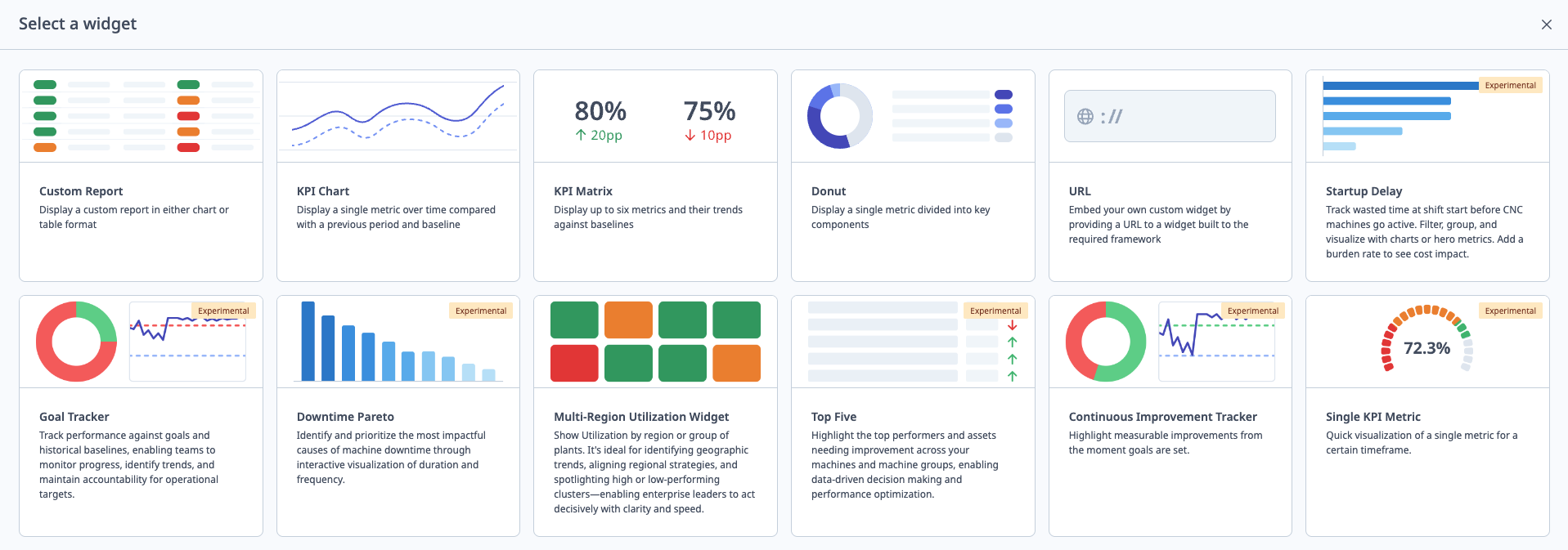
Comments